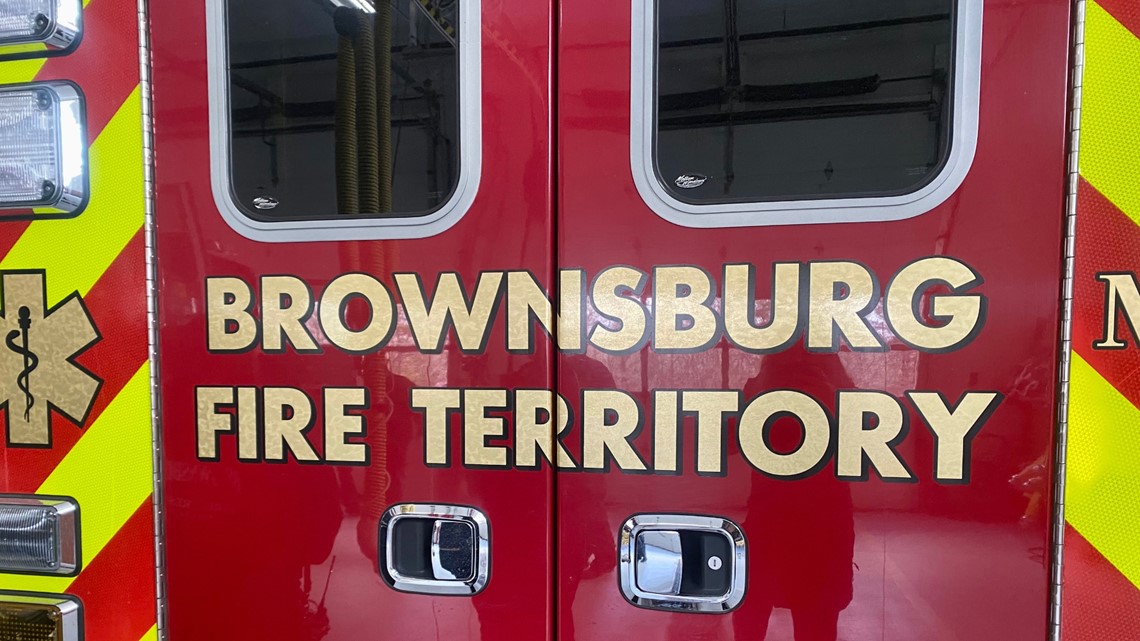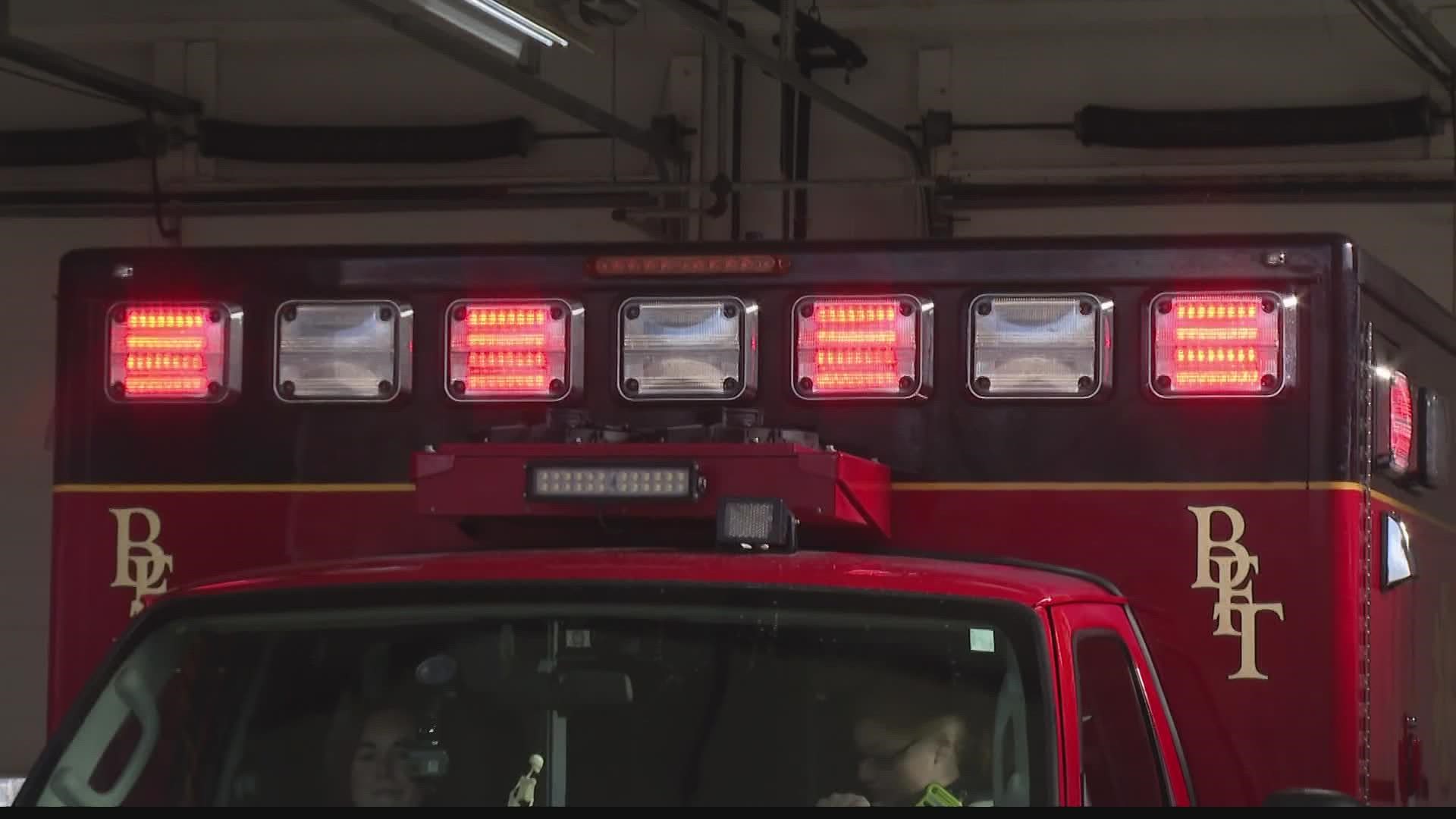BROWNSBURG, Ind. — When paramedics get a call, they will always come to help, but where they can take you is constantly changing.
“The last two years have been incredibly difficult," said Jessica Hudson, a paramedic for Brownsburg Fire Territory and a part-time registered nurse. "We have seen the waves come through. We see when COVID is bad. We see when it’s not bad. Our volume of calls and runs has gone way up. Our transport times are longer. It’s taking longer for us to get to patients. Longer to take care of them."
The pandemic has created new challenges for paramedics. Many hospitals are at or above capacity and, at times, aren’t accepting new patients because they are too full or don’t have enough workers. That’s when hospitals go on what’s called “diversion.”
“It used to be that patients mostly had the luxury of choosing what hospital they want to go to and we can’t honor that anymore. Those hospitals may not be accepting the types of patients that want to go there,” Hudson said. “Patients aren’t happy that they can’t go where they want to. We are not happy that we can’t take them there.”
Hospital diversions can change by the minute and paramedics are having to check for updates.
“We use a state reporting website that we have access to that will tell us who is on diversion and who isn’t. If we have patient who are stable, then we are willing to transfer them outside of our area a little bit. If we have a patient who is critical, we are having to disregard that diversion and call them on the radio. Recently, they have been really gracious,” said Ashli La Lond, a Brownsburg paramedic who also works part time as a registered nurse.
Hudson said it’s a balance between paramedics and hospitals.
“We can always force a hospital to take a patient, but that doesn’t usually set up a good working relationship with the hospital later on,” Hudson said.
With longer transport times, it also means ambulances are taking longer to get back in service for the next call. According to Hudson, when transporting to a local hospital, a call can take an hour to an hour and a half, but if they are going downtown or to the other side of town, it can take more than two hours.
“We are finding ourselves responding to calls in Indianapolis because their resources are stretched,” La Lond said.
Like many other health care workers, paramedics are burnt out.


“We all have reached the point where we are just so burnt out and we are tired and it’s really hard because we are still trying to take care of people. I think we are finding that we are not really taking care of ourselves anymore,” La Lond said.
“We’re exhausted. We are doing more with less. We have staffing shortages. We have supply shortages. We are constantly being expected to do more work than we ever have before,” Hudson said. “I have lots of friends and colleagues quitting to do other things, a lot of nurse friends who are just fed up who are leaving completely.”
Despite the challenges and limited resources, Brownsburg paramedics will always respond and provide the best care to every Hoosier that calls.
“If you call, we will come. We always will, but it is definitely more challenging than it ever has been before,” Hudson said.
So the next time you call 911, remember many first responders are going the extra mile to provide help.
“Be patient. Be gracious and get vaccinated. Please get vaccinated,” La Lond said.
Currently, Brownsburg Fire Territory has two ambulances in service but is looking to add another to help with rising call volume and to improve response time.

